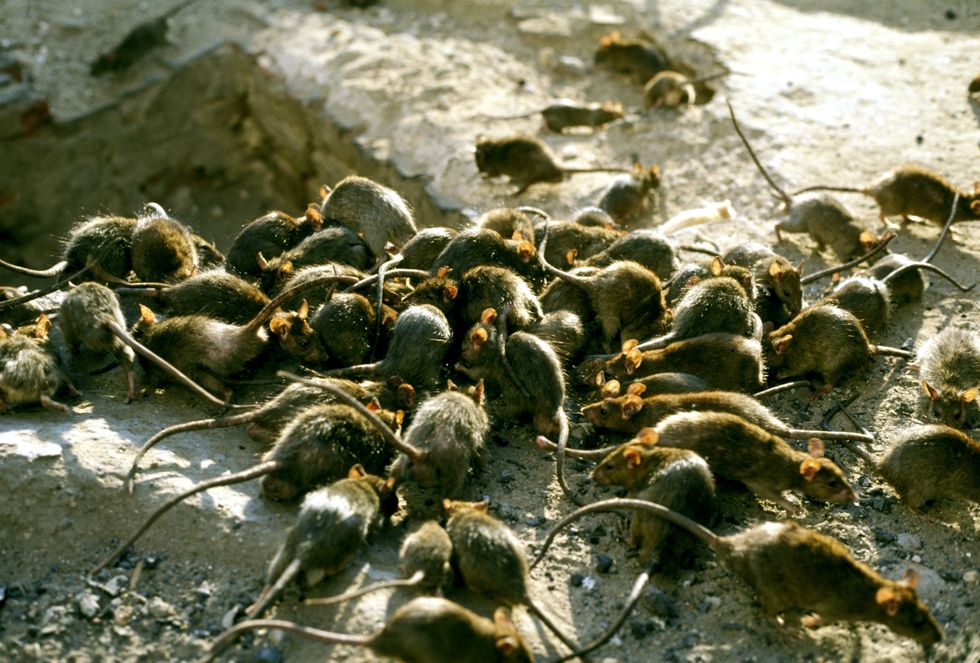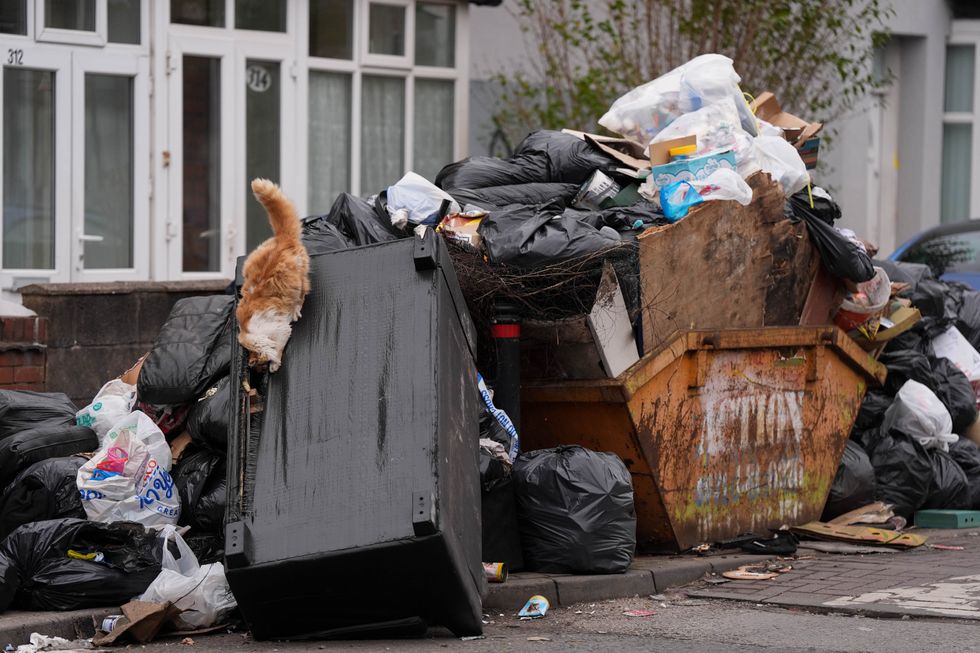Deadly health warning issued as rat-infested rubbish could spread virus which triggers 'eye-bleeding' and organ failure
WATCH: Patrick Christys visits Birmingham, where a stand-off over bins has led to no rubbish being collected for weeks
Weil's disease and hantavirus could be spread by rats running rampant through the city's streets, experts warn
Don't Miss
Most Read
Trending on GB News
Health experts have issued a deadly disease warning over the Birmingham bin crisis - with rat-infested rubbish at risk of spreading a virus which triggers "eye-bleeding" and organ failure.
The UK's largest second city is facing a growing public health crisis as mountains of uncollected waste pile up across the city.
The refuse has accumulated thanks to dispute between the local authority and the Unite union over plans to scrap the former's "Waste Recycling and Collection Officer" role.
And with temperatures soaring into the 20s, experts are warning the rotting waste could become a breeding ground for disease-carrying rats.
The rodents are already running rampant through the city's streets as the strike continues.

The rodents are already running rampant through the city's streets as the strike continues (file photo)
GETTY
"The issue is simply more rats," warned Professor Malcolm Bennett, a zoonotic and emerging disease expert at the University of Nottingham.
Experts are particularly concerned about Weil's disease, a bacterial infection spread by rodents which can be fatal.
The disease causes fever, abdominal pain, and in severe cases, bleeding from the eyes and kidney failure.
Hantavirus is another deadly concern, with both diseases spread by infected rats in their urine.
"Both are excreted by infected but healthy rats in urine, and both can cause severe disease in people, and even death," Prof Malcolm explained.
Rats "urinate wherever they want as to mark territory," creating widespread contamination.
LATEST ON BIRMINGHAM'S BIN CHAOS:
 PICTURED: A cat climbs over rubbish piled around an overflowing skip in Birmingham on March 17 - bins haven't been collected sincePA
PICTURED: A cat climbs over rubbish piled around an overflowing skip in Birmingham on March 17 - bins haven't been collected sincePAThose at highest risk include rough sleepers and waste workers who have direct contact with rats.
The elderly, very young, and those with compromised immune systems face more severe outcomes if infected.
"Infections are more likely to cause more severe disease in those with other diseases, especially if those affect the immune system," Prof Malcolm said.
According to the UK Health Security Agency, England sees an average of 57 laboratory-confirmed cases and 89 probable cases of Weil's disease annually, with about two deaths per year.
Since 2012, only six confirmed cases of acute kidney injury due to hantavirus have been recorded.
But Professor Tom Solomon from The Pandemic Institute warns that "with an explosive increase in the rodent population, the potential risk goes up".
 The strike was triggered by a dispute between the local authority and Unite union over plans to scrap the former's 'Waste Recycling and Collection Officer' rolePA
The strike was triggered by a dispute between the local authority and Unite union over plans to scrap the former's 'Waste Recycling and Collection Officer' rolePAWarmer weather can "drive rat breeding," further increasing disease risks, he said.
Talks to end the bin collectors' strike have been described as "productive," though issues remain unresolved.
A Birmingham City Council spokesman said: "We are looking forward to continuing with negotiations."
And reports of rats have already triggered bizarre protests - in one council meeting, a resident dressed as a rat questioned when streets would return to an "acceptable state".
There are also fears similar strikes could spread to six other areas including Brighton, Sheffield and Barnet in north London - all of which are struggling with equal pay claims, according to The Times.
Health Secretary Wes Streeting has also voiced his concerns about the situation.
"As the bin bags are piling up, we see rats and other vermin crawling around," he told Times Radio.
"That's not good for public health... I think this dispute has escalated way out of hand."
But for now, "what individuals can do is wash their hands and maintain good hygiene, including thinking about what they might bring in on their shoes", Prof Malcolm added.








